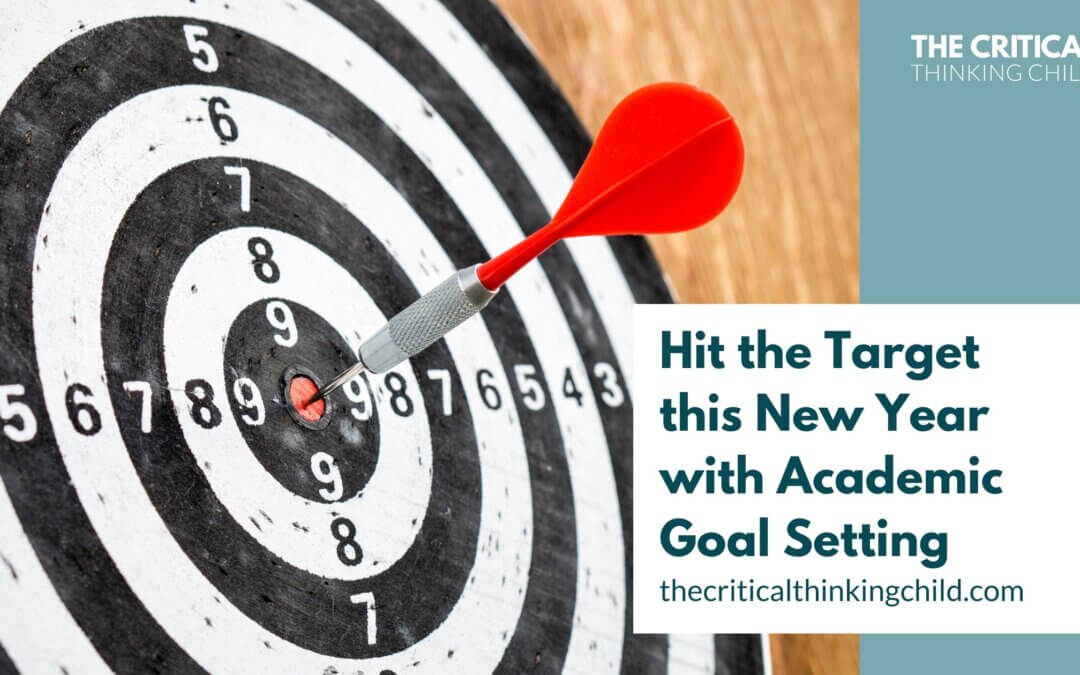With the start of a new year, we as adults make all kinds of goals and resolutions: get more sleep, exercise more often, eat better. These goals help us stay on track and motivate us when the day-to-day gets difficult. Kids can benefit from resolutions and goals too, especially after another chaotic pandemic year. Why is goal setting important for children, and how can you help your child set, track, and achieve their goals? We’ll explain the research behind goal setting for kids and give you some resources for goal setting worksheets and goal setting templates that you can use at home!
Why Set Goals?
Research shows that goal setting helps increase students’ intrinsic motivation—that is, it encourages them to work and achieve for the satisfaction it brings them, not for any external reward or validation. Additionally, goal setting has a proven track record of improving academic performance across subject areas, as well as increasing student engagement with the content. You might see this growth in your child in the form of increased self-confidence, curiosity, and motivation around school work.
How to Set Goals
When it comes to setting goals with your child, think SMART: Specific, Measurable, Attainable, Realistic, and Timely. Aiming to set goals based on these parameters is the best way to ensure that your child will be successful in achieving them. To demonstrate how this works, let’s compare two different goals—one that follows the parameters and one that doesn’t.
For example, let’s say you set a goal to “be a good student”:
-
- Specific: This goal isn’t detailed enough to know what steps to take to achieve it.
- Measurable: This goal isn’t measurable because there’s no definition for what success looks like, and therefore no clear metrics for tracking progress.
- Attainable: Although this goal may theoretically be possible to attain, it’s not clear what that would look like. What does it mean to be a good student—better grades? More effort?
- Realistic: Your child may struggle in some areas more than others, and so simply being a good student overall may not be realistic. Seeking a specific area for improvement would be a better goal to strive for.
- Timely: There is no time frame on this goal, which could make it difficult to see progress and stay motivated.
Conversely, a goal like “Go from 30% correct to 60% correct on spelling tests by the end of the month” is a goal that meets all of the SMART requirements:
- Specific: It’s clear exactly what success with this goal would look like—60% of words correct.
- Measurable: Spelling tests are graded very clearly and consistently, which provides helpful data for tracking progress.
- Attainable: This goal seeks a modest amount of improvement—something that’s perfectly possible with time and effort.
- Realistic: Seeking improvement on spelling tests is an appropriate and sensible goal for a student.
- Timely: This goal has a clear timeline, which prevents fatigue and helps motivate the student by contextualizing their progress.
While it isn’t necessary to set goals that meet all of these parameters every time, aiming to satisfy the SMART requirements will keep your goal setting on track.
Resources
Are you ready to start goal setting with your child, but looking for a guide? Look no further than our academic goal planner! You can download a freebie first, and then purchase the whole CTC Academic Goal Planner here when you want more! It has a number of goal setting worksheets and goal setting templates that you and your child can work on together. From a list of goals to choose from, to worksheets to record action steps, we’ve got you covered every step of the way.
Talking Points
How can you help motivate your child to set and achieve their goals? Today’s talking points feature some of our favorite inspirational goal setting quotes.
- “People with goals succeed because they know where they are going.” —Earl Nightingale
- “I don’t focus on what I’m up against. I focus on my goals and ignore the rest.” —Venus Williams
- “Nothing is impossible. The word itself says ‘I’m possible.’” —Audrey Hepburn
- “A goal properly set is halfway reached.” —Zig Ziglar



